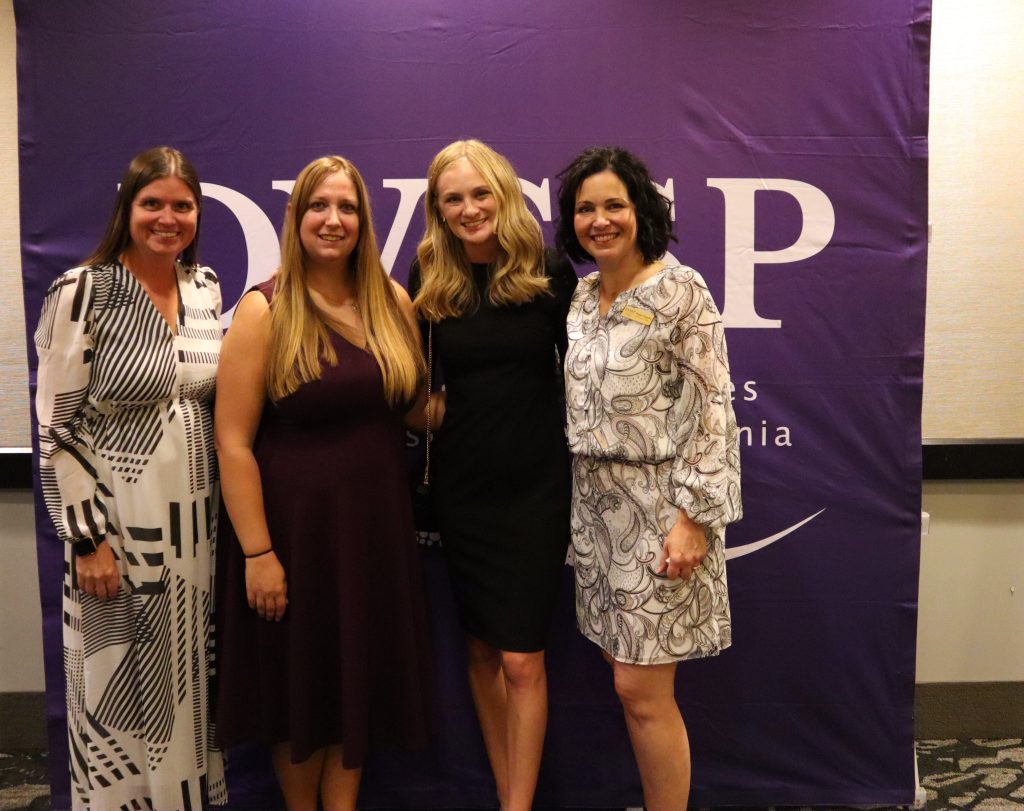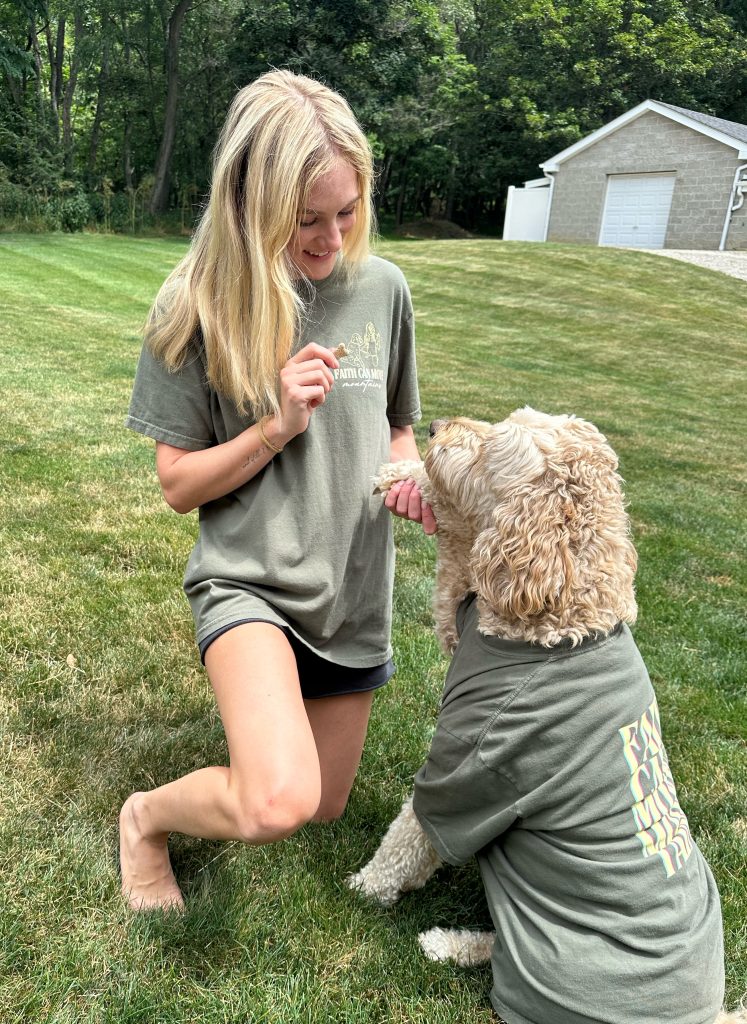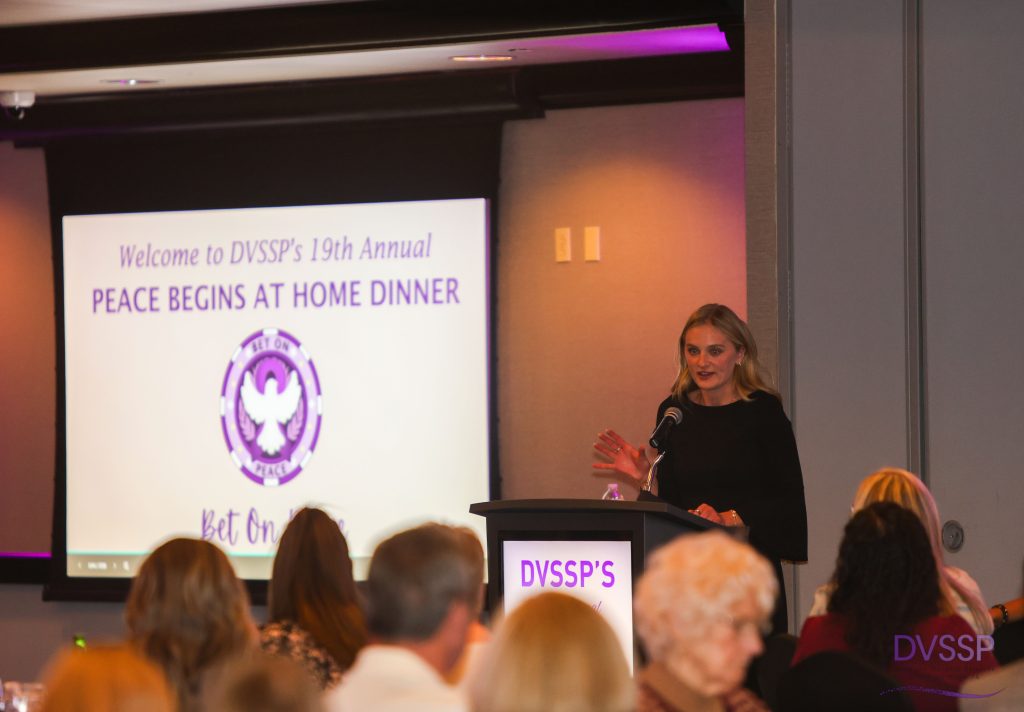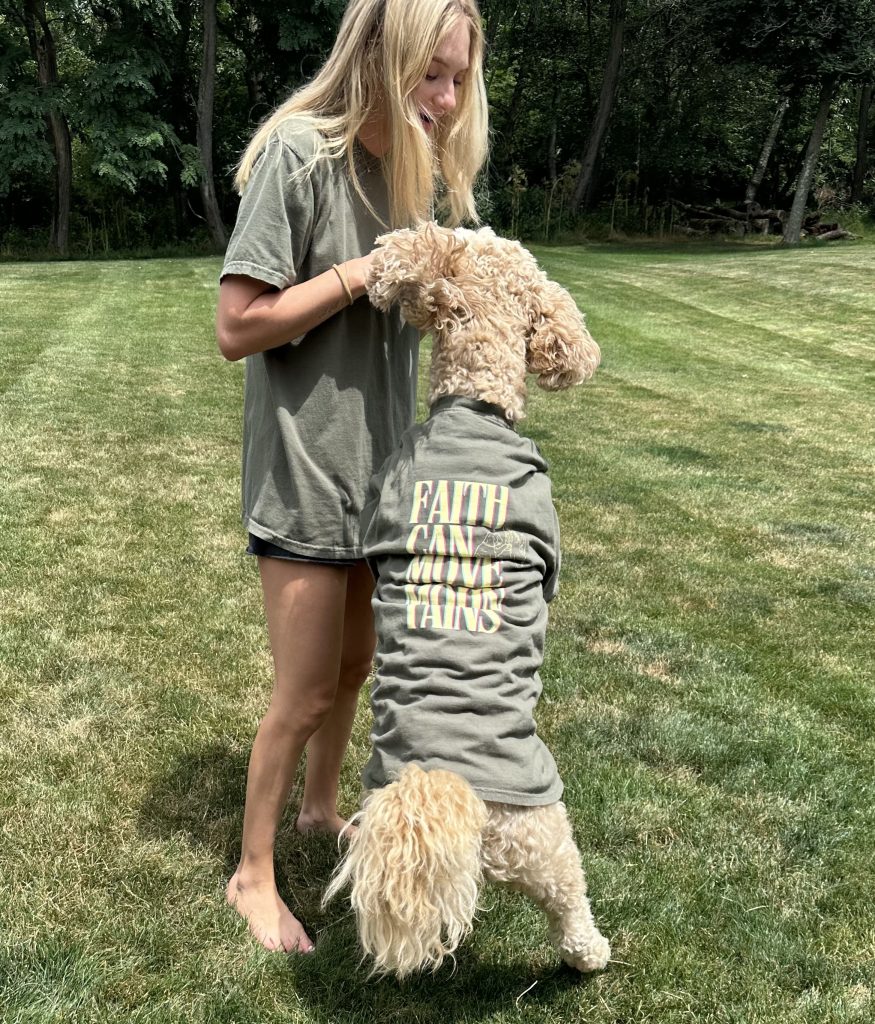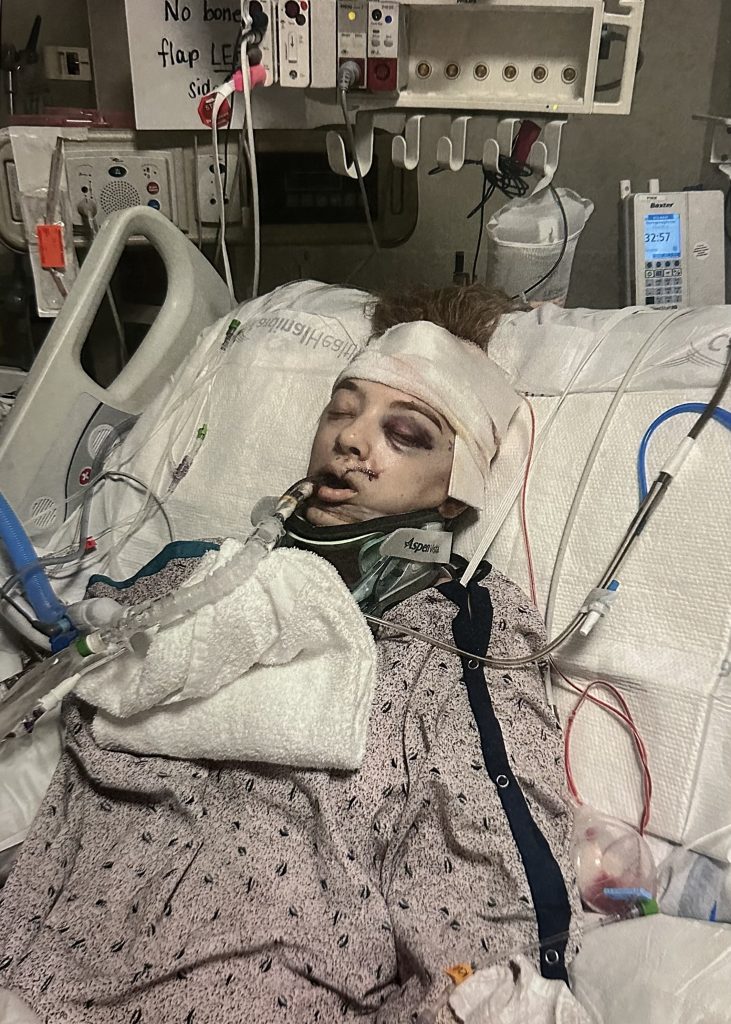‘Your life matters’
Bridgeville woman who was brutally assaulted advocates for domestic violence victims
When someone asks Jen Pardini about the night her ex-boyfriend brutally attacked her and nearly ended her life, she answers the questions openly and without a hint of hesitation.
Nothing, the survivor-turned-advocate said, is off limits: not the night he fractured her skull with a hammer, the abuse that preceded it, her recovery, or the life she’s built since.
“I always say that I think everything happened to me for a reason,” Pardini said, “and I want to help others in any way I can.”
‘No one thought I would live’
Pardini’s 2½-year relationship with William McCann Oberschelp was mired by mental and emotional abuse caused by his substance abuse.
They broke up briefly, said Pardini, but then reconciled.
The 28-year-old Bridgeville woman said she believed things would be different, that they would be better.
Instead, she got back onto the proverbial roller coaster that is often present in domestic violence cases.
“They abuse you. They tell you it’s going to be OK, and you believe it. Then they do it again,” Pardini said.
Worsening isolation accompanied the mental and emotional abuse.
The night Oberschelp attacked her, Pardini said, he’d checked himself out of a mental health facility, drank alcohol, then took an Uber to a gas station near her parents’ home in Peters Township. He used a spare key to get into their home and walked into Pardini’s room.
She said she opened her eyes to see Oberschelp standing over her. He took her phone, and not wanting to wake her parents, Pardini convinced him to go outside.
They walked to the nearby woods where Oberschelp took out a knife and held it to her throat. That was the first time he had been physical toward her, Pardini said.
At first, she froze. Then she ran.
“I thought I’d beat him to the garage,” she said. “That was the last thing I remember before I woke up in the hospital.”
Family members and police filled in the rest. Oberschelp hit her with a hammer and kicked her in the face.
The attack stopped when the family dog Leo started barking and woke her parents. Pardini’s father saw her and yelled for her mother to call 911.
She was flown to Allegheny General Hospital where “no one thought I would live.”
The road to recovery
The assault had shattered her skull, knocked out several teeth, and left her with permanent damage to her left eye.
Dr. Jody Leonardo, a neurosurgeon at Allegheny Health Network (AHN), performed an emergency surgery to repair her skull with a metal plate. Leonardo said Pardini’s courage left a lasting impression on everyone who treated her that day.
“Jen is one of the bravest humans I’ve ever met,” said Leonardo. “Her injury profoundly affected every single person in that operating room. Her courage and strength during the healing process were simply inspirational.”
But Pardini said it’s Leonardo who deserves the praise.
“She’s an amazing, amazing neurosurgeon – not only because I survived, but because I’m living like I did before,” she said, also lauding the nurses and other staff who took care of her.
Since the initial lifesaving surgery Pardini has had several others, including reconstructive surgery to her face, eye surgery and dental surgery.
Her left eye is lower than her right eye, and she will always have double vision in her left eye, which poses a small challenge when she does tiny tattoos – something she’d started doing before the attack.
“I always tell people, ‘If you want an absolute perfect tattoo, I’m not the person to come to. If you want a tattoo that’s meaningful then I’m your girl’,” she said.
Prevention efforts
The severity of Pardini’s assault underscores why it’s so important to identify those who are in abusive situations, said Kristin Lazzaram, director of strategic operations for Allegheny Health Network’s Center for Inclusion Health: Intimate Partner Violence Program.
Started in 2020, the program trains hospital employees to help patients who are caught in abusive situations by providing them resources. The first step in that process, said Lazzaram, is teaching employees how to recognize the “spectrum of abuse,” which can include physical, mental and financial control.
The latter two can be difficult to identify, even for patients themselves.
“Sometimes they don’t even realize that’s not normal or healthy,” Lazzara said.
When she was being abused, Pardini said she initially confided in a few family members and some friends about it. She slowly stopped as things worsened.
On several occasions, Oberschelp asked Pardini to move away with him, but she told him no.
“I realize now he wanted me to move to a spot where I didn’t know anyone,” she said.
Jackie Parker, communications specialist with DVSSP, said isolation also includes discouraging someone from spending time with others, showing extreme jealousy, controlling finances or threatening or insulting their significant other.
“It is one of the first clues that a relationship may become abusive,” Parker said.
Earlier this year, Oberschelp, 29, of McMurray, took responsibility for the assault, pleading guilty to attempted homicide and other charges.
Before he was sentenced to 16 ½ to 33 years in prison, he told the judge, “I cannot imagine the hurt I caused or the amount of lives I affected.”
‘Be brave’
To raise awareness about domestic violence, Pardini has shared her story with many different media outlets. On Wednesday, she spoke at the Peace Begins at Home dinner, a fundraiser for Domestic Violence Services of Southwestern Pennsylvania.
Pardini talked about hope and healing, and reminded those in attendance that survivors are not defined by their abuse.
“You could hear a pin drop in that room when she was talking,” said Parker. “Jen has extraordinary strength, resilience and compassion. She’s an important reminder of why this work matters.”
The advocacy has been fulfilling, with people in abusive situations reaching out to tell Pardnini her story helped give them the strength to leave.
Pardini is now in a relationship, but recognizes she has “little tendencies” that remain from her time with Oberschelp, like apologizing for things that aren’t her fault, or thinking her new partner will be angry over something innocuous.
“I am slowly learning these things that he put me through are not normal, and there are so many things in life that I was missing out on,” she said.
Asked what she’d tell someone in an abusive relationship, Pardini was quick to say what she wouldn’t.
“I’d never tell someone to leave,” she said.
While that may seem counterintuitive, Pardini said she thinks of herself. Had someone told her to leave, she said she would’ve strapped in tighter and stayed on the roller coaster of abuse, hoping it would get better.
So what would she say?
“Your voice has so much more power than you think it does. Do your best to stand up for yourself and be brave. You’re a person, a living human being, and your life matters just as much as their life.”
Domestic Violence Services of Southwestern Pennsylvania serves residents of Fayette, Washington and Greene counties. The agency’s helpline is available 24 hours a day and can be reached at 800-791-4000.



